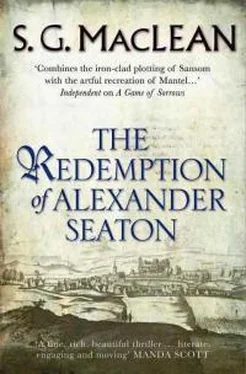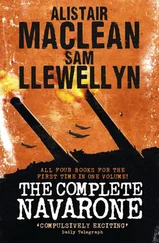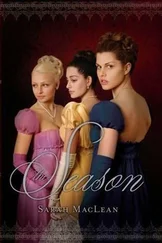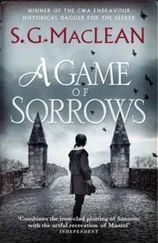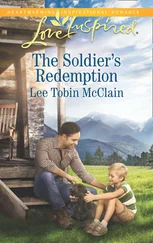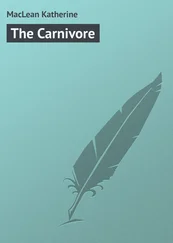She asked me once more, ‘You are not on the baillie’s business?’
I repeated that I was not.
‘Nor yet the minister’s?’
‘We have no minister now, in Banff.’
‘Indeed?’
‘Since …’ I hesitated, unwilling to speak in this place of witchcraft.
‘Since they burnt that poor girl for a witch,’ she said.
I lowered my head. ‘Yes. Robert Guild will never preach in Banff again.’
She spat again. ‘Well, since you are here for neither Kirk nor council, I will tell you. The girl was with child. The bairn was his – her father’s apprentice. They came to me at first to ask for some compound or practice that might help her carry the bairn a few weeks longer – beyond its term. They wished to marry, but they knew that before they had the banns up her belly would be swelling and their secret known. They did not wish that shame on the bairn’s name, or the humiliation for themselves of sitting before the kirk on the stool for all the hypocrites to rail at. Also, I think the girl did not wish to disappoint her father. She did not say so, but I have seen it many times, and the look was in her eyes that I have seen on many others.’
The horror of it came cold on me. This was what Jaffray had known; this the secret of the dead that he had kept in the face of all my questioning. And he had had to watch, helpless, as the mob had taken her dead body from his house and added barbarity to barbarity. A mother had been murdered and within her her child, and it had been burned in her womb. I did not know how I would face the lykewake Arbuthnott intended for his daughter. The thing had been macabre enough without this.
My voice was hoarse. ‘Were you able to help them?’ I asked.
The crone shook her head. She indicated with a sweep of her hand the shelves of bottles and jars behind her. ‘My skill is in cutting short a woman’s time, or when it comes to it, assisting a living child into the arms of a living mother, when God so grants it. For the prolonging of a pregnancy I can do little, save to tell a woman to eat well and avoid toilsome labours. I explained this to them. She was much downcast, he agitated. I told them there had been many come to me in a worse case than they; that they should take their punishment and know that it would pass. I told them of those who have come to me in desperate straits – even of his own aunt, who had near lost her wits in fear and gone about like a thing haunted by the end of her life over the loss of all her children.’ She stirred her pot thoughtfully. ‘Aye, haunted she was indeed by them.’ She did not linger long in her reverie. ‘And so they left. And then the next thing I knew, the boy was dead by an unknown hand.’ She paused again for thought, before adding very matter-of-fact, ‘It may have been her father.’
I made no response to this, for it was a distraction from the path my mind was now taking. ‘Marion Arbuthnott came to see you again, did she not?’
‘Aye,’ she responded warily, ‘she did.’
‘What did she come for the second time?’
She looked at me carefully, assessing me. For a moment I feared she might lie, try to tell me that the girl had come for some charm or compound to rid her of her fatherless child. But something set in the crone’s face. A decision, a resolution. She would trust me. ‘She came to ask me about a flower.’
‘Colchicum mortis.’
She nodded slowly. ‘Aye, that. She wanted to know if I knew of it. I have some little knowledge of it, of its nature and properties, but I have never seen nor used it, or known anyone who has. This I told her, and she was greatly disappointed. I told her to ask her father, but she said she could not risk that.’ She stopped. ‘Or did she say risk him? I cannot remember.’
I knew why: Marion Arbuthnott knew that knowledge of this evil was almost as deadly as the poison of the plant itself. It was the knowledge that had made her fear for Charles Thom and a conviction that had been proven correct by her own death. I persisted, nonetheless. ‘Did she tell you why she wanted to know about this plant?’
‘It took much to draw it out from her, for she was a close, strange girl, and frightened. But she told me in the end. The lad, she said, had been quiet, preoccupied, all their journey back to Banff. He had scarcely spoken two words on the long road home. But, as they had crested the Gallowhill and begun their descent into the town, he had stopped dead, as if struck by a vision. And then he had said quietly those two words. Colchicum mortis . He had repeated them, and then had said no more but that he must leave her, for he had urgent business to attend to. She had seen him only once more, at her father’s table the next night. He had eaten nothing and appeared agitated still, excited almost, but it was a dark sort of excitement. She told me she had a presentiment of evil.’ The crone shrugged. ‘And maybe she had; she was a sensitive child, and knowing. Anyhow, the boy had told her he had some business on hand that night, and she was not to ask him of it, or seek to follow him. The next morning he was dead.’ The woman’s tale told, she lifted her pot and set it in a dark recess to cool.
There was no more to be had from her, and I stood up and began to pull on my cloak. She looked up.
‘Where are you going?’
‘I am returning to Banff,’ I said. ‘I must before dark. There is much I must attend to.’
She smiled. ‘You will not get back to Banff this night. The fog will not lift till the morning. You would be lost in five minutes and dead in ten.’ It was not an opinion, but a statement of fact. She lit a small lamp and set it by me. Then she went to a chest in some dark recess of the cavern and brought out a slim volume, old and well read. ‘This is my only book, save the Bible. You may entertain yourself with it if you wish. I do not seek company, and I have spoken more these last two weeks than I would wish to in half a year.’ She brought me also a bowl of mussels and a hunk of bread. It was the last exchange we had for many hours.
I pulled the lamp closer to me and opened the book at the title page: The Poems of William Dunbar . Dunbar. An unexpected warmth spread through me, a memory of childhood evenings by the fire, listening to my father, the day’s toils over, telling stories of his youth, of his journeying with the laird of Delgatie. Those were the nights he would sing the old ballads or say the poems. Those had been the magical nights, when my mother too had been young again and had remembered why she had loved him. For me, it was not the great adventures overseas, nor the ballads of romance, but those poems in our own Scots tongue, written by a court clerk dead a hundred years, that had allowed me to glimpse for a brief hour the humanity of my own father. I had not looked at or listened to one of Dunbar’s poems since the day they told me he was dead. I feared almost to open the book further, for what memory I would find there. I laid the volume down and settled back on the furs and skins beneath me, hoping for sleep. None came. The silence of the sea outside was more terrifying than all the fury of its rages. The crone was oblivious to it. Some powders she had been grinding she now put in a glass jar and was adding distilled water, drop by drop. She would sniff at it every so often, then mutter to herself before adding some other powder.
I had learnt what I had come to learn from her, and had no wish to tarry longer in this place, but her advice was good: there could be no sense in attempting to reach Banff before morning. There was much I could have done in these futile hours, in any other place but this. I had no idea what hour of the day or night it was. I gave over trying to sleep and opened the volume once more, this time having the courage to turn the pages further.
Читать дальше
